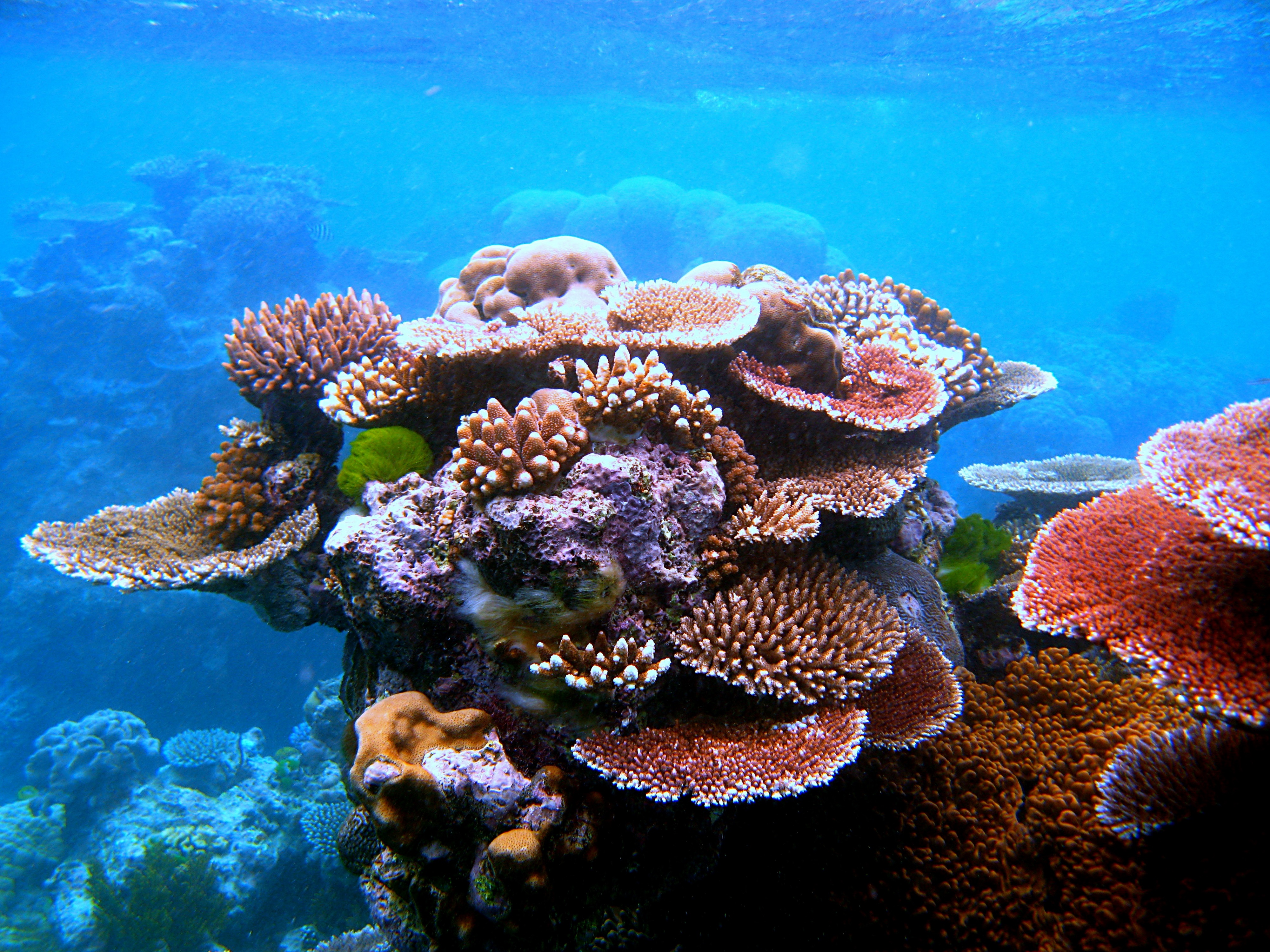Climate Change - Corals and Coral Bleaching
Healthy coral can be very colourful.

Some coral reefs have started to look rather different.

This is called 'coral bleaching'.
To understand this, we need to start by looking at corals.
Corals are animals that make a framework around them that looks like rock.
Coral animals (polyps) have tiny plants - algae - living in their tissues.
The algae provide food to the corals, which they produce by photosynthesis.
Reef-building corals only live in a limited temperature range.
Like porridge, they should be 'not too hot and not too cold'.

Coral reefs are concentrated in a band around the equator, between 30°N and 30°S latitude.
Algae in corals need light
Corals grow in warm, clear, shallow waters that receive plenty of light.
Most corals grow in the warmest water they can stand (about 85° F or 29° C).
This means that slight increases in ocean temperature can harm corals.

Some coral reefs have started to look rather different.
This is called 'coral bleaching'.
To understand this, we need to start by looking at corals.
Corals are animals that make a framework around them that looks like rock.
Coral animals (polyps) have tiny plants - algae - living in their tissues.
The algae provide food to the corals, which they produce by photosynthesis.
Reef-building corals only live in a limited temperature range.
Like porridge, they should be 'not too hot and not too cold'.
Coral reefs are concentrated in a band around the equator, between 30°N and 30°S latitude.
Algae in corals need light
Corals grow in warm, clear, shallow waters that receive plenty of light.
Most corals grow in the warmest water they can stand (about 85° F or 29° C).
This means that slight increases in ocean temperature can harm corals.